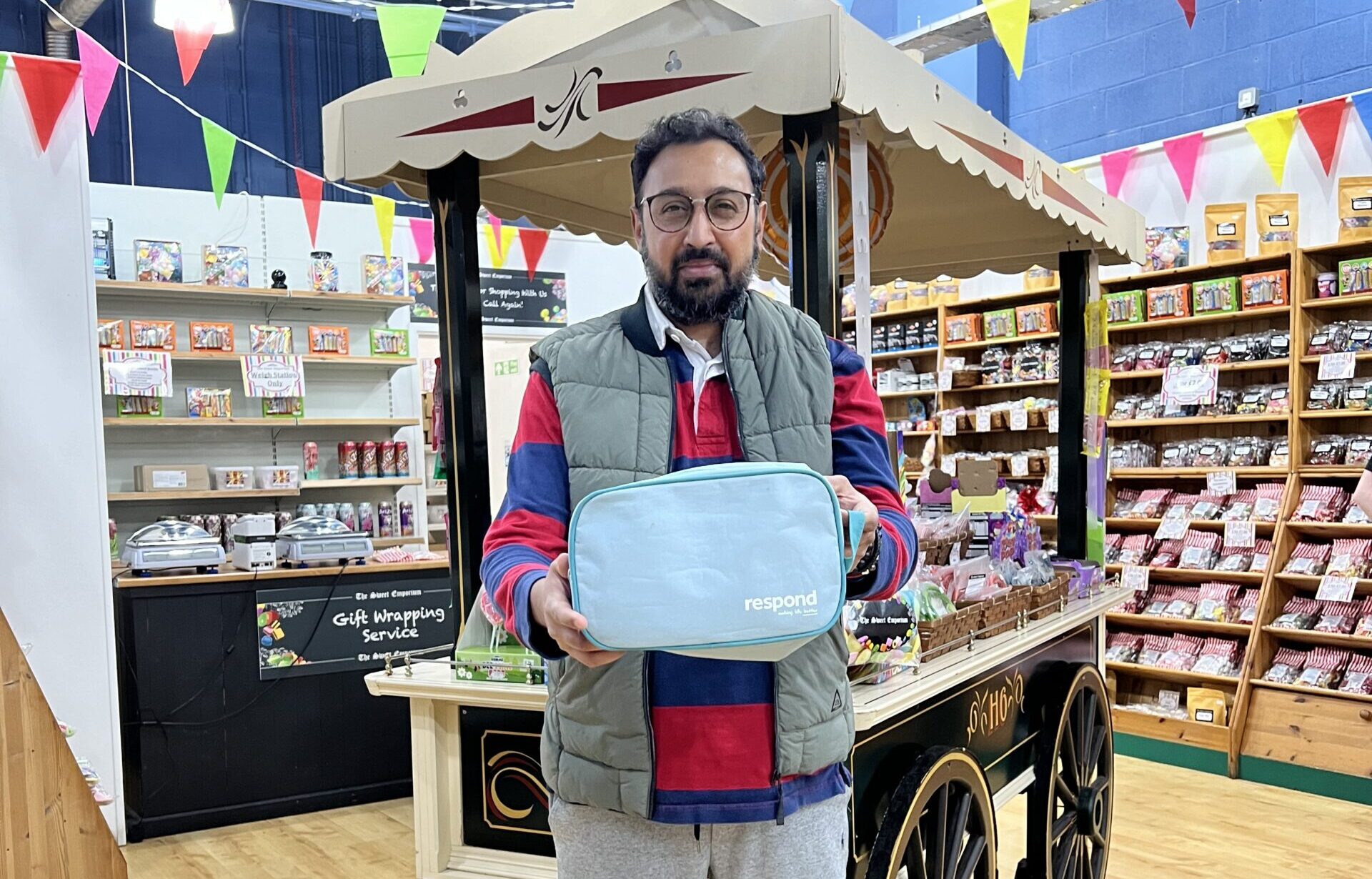I am a 63 year-old bus driver from Swansea in South Wales, now living in Llanelli, and working has always been very important to me. I suffered for many years with Ulcerative Colitis; in 2012 my bowel finally gave up on me and I had to have a total colectomy.
I knew that I wanted to make the most of my life following my operation and getting back to work was definitely a big part of the plan. Prior to my stoma surgery, my working life had become increasingly difficult. While I was going through my illness, I worked as a quality control inspector and then as a purchaser for a bus seat manufacturer. This was a very difficult time; I had one of the worst sickness records ever. I would always try to get to work, but due to the colitis, I soiled myself on the way to work quite regularly. At that point, there were two options: go home to shower and try again or just phone in sick. Unfortunately, it was always the phone call. On days like that, I felt so ill and depressed, I didn’t know if going back to work would ever be an option, but after my life-changing operation, it took only 6 weeks before I went back to work.
Things to consider before returning to work:
- The severity of your disease, reason for the operation, type of work and age will all play a role in how long it takes before you can go back to work.
- Generally, if you feel comfortable travelling to and from work, have enough energy and can change your bag without assistance then you can return to work.
- Those performing manual labour that requires a lot of bending and stretching may need to get advice on how to protect their stoma, for example by wearing a stoma belt.
- Check out the toilet facilities at work before you need to use them.
- Where possible, it is useful to keep a change of clothes and all ostomy supplies at work.
- Before going back to work, work out how many times a day you will need to change or empty your bag.
- Try to keep the conversation going with your employers; they can’t be expected to understand your needs if you don’t share information with them.
This return to work was a massive thing for me, although I had to be very careful not to lift anything too heavy; a hernia was a real threat due to the opening in my stomach wall to accommodate the stoma, which left it considerably weaker than before. Management and my colleagues were incredibly supportive, and as I had an office job at this point, lifting heavy loads wasn’t an issue. My employers were accommodating regarding any follow-up appointments with the doctor or at the hospital. In all honesty, they had been totally understanding when I was at the height of my illness and always tried to give practical support in any way they could. (Points 1-3)
In the factory, there was a separate, lockable toilet provided for me; sharing the rather basic facilities with the rest of my workmates was just impossible. This was a comfort to me on my return to work for reasons I don’t need to explain. (Point 4)
For the last 12 years, I have worked as bus driver for First Cymru. Again I was completely open and honest about my illness and operation during the hiring process and told how my life had changed for the better since gaining my stoma. I have been able to work 40 hours a week as a bus driver, so having an ostomy has meant that I have been able to return to a normal life, albeit with a few compromises. Management ensured I have a personal, lockable cupboard in the staff area where I can keep spare ostomy products and spare clothing should I have an ‘accident’. This is a very important measure that gives me reassurance. (Point 5)
Over the last year, my work situation has been more challenging – not because of the work itself but because new leadership and new systems have disrupted my very well managed routines. It has taught me a valuable lesson though, and you can never take anything for granted in the workplace. Owing to a different rota system, I am not able to drive certain routes where there are no toilets available for a significant distance and/or time. I have had to make a very clear distinction to my managers about what I can and can’t do. Following some time off work with stress over it all, I met with various managers and supervisors and we agreed what was going to be suitable for both parties and that has worked well up until recently. I was told, out of the blue, that I had to come off the route I was driving and take over a different route around the city. This meant there would be no opportunity for toilet access so it became far too long for me to comfortably manage my bag emptying. I had to say that it was impossible for me to do this so naturally it led to me having to have more meetings with the new management colleagues to inform them, yet again, about what having an ileostomy means. The fact that my stoma is constantly working and that I have no control over the rate at which my bag fills, in real terms means that I need to be able to have access to a toilet every hour. It was a very stressful few weeks until things could be sorted out satisfactorily. (Points 6-7)
What this recent experience has shown me is that there has to be ongoing dialogue with employers. I had come to assume everyone knew enough about my ostomy to accept that I have been given my current routes for a reason, but it wasn’t the case. It has spurred me on to keep raising that all important awareness about our community. Ostomates should have the support and confidence to insist that those reasonable adjustments are made to enable those of us with a hidden disability to fulfill the roles we have within the workplace.
My stoma, Homer, saved my life. I try to show others that there is a great life to be had after illness and that doing a full-time job is absolutely achievable. In my job, I meet a lot of people and would say that about 90% of them know about my stoma. Colleagues and management should not feel they need to treat me differently because I have a disability, albeit a hidden disability, but that sometimes things may just need a few tweaks to make them run smoothly. Remember: be positive and proactive and you can overcome pretty much anything!





